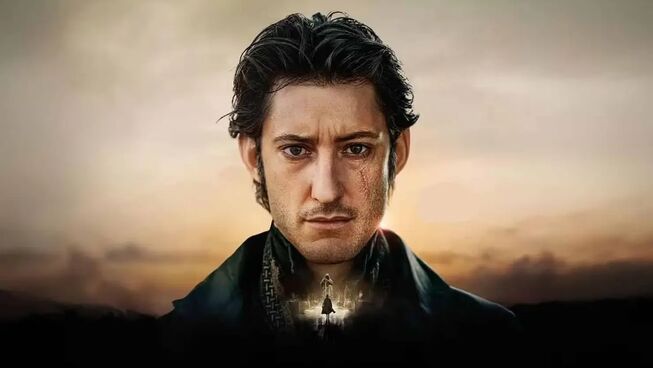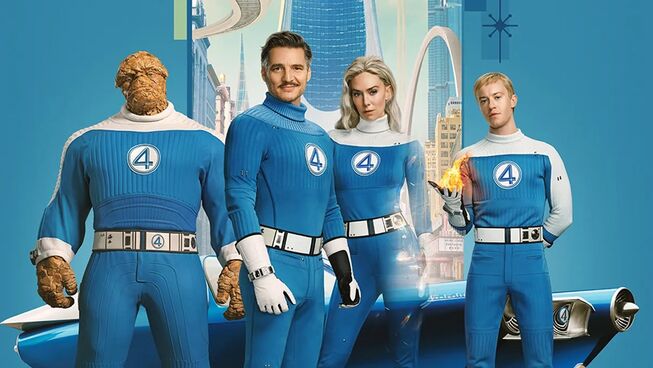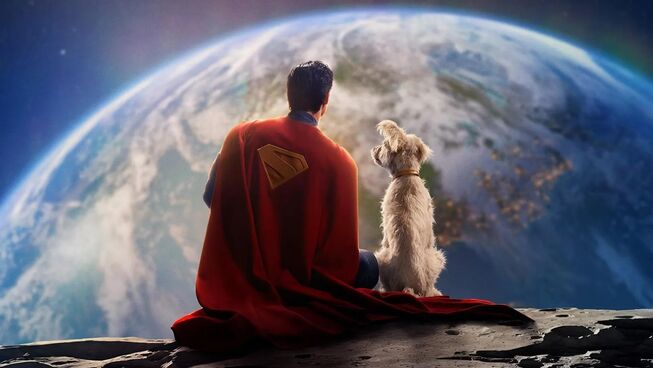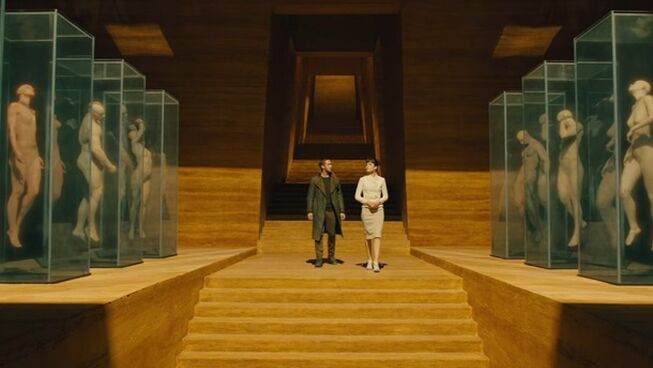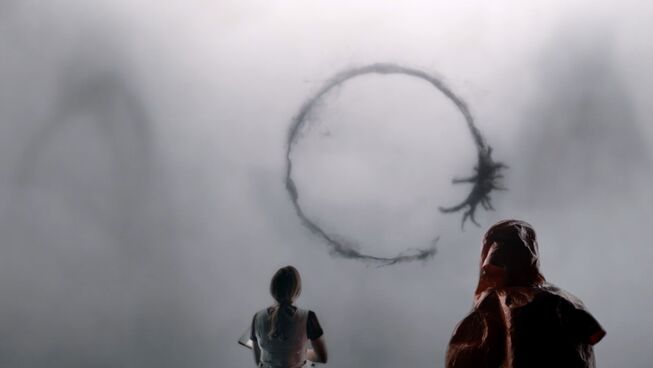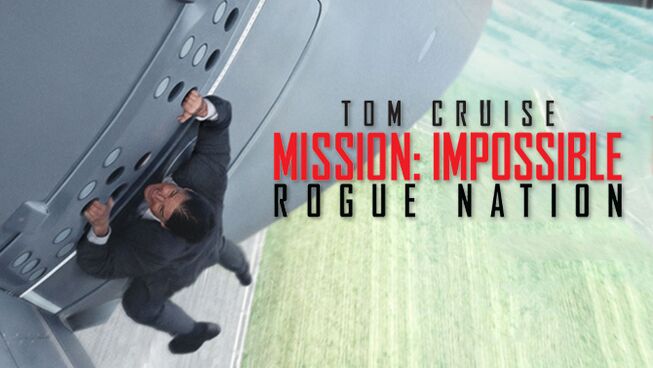Dune

⭐️ ⭐️ ⭐️ ⭐️ 1/2 (out of 5 stars)
With one of the year's most anticipated releases, we pulled in the whole Reel Dialogue team to deliver this resource. Enjoy the team compilation of history, reviews and Biblical insights.
Synopsis and history (Nick Long)
In 1965 novelist Frank Herbert completed his sci-fi magnum opus, Dune. This is a direct reference to the hazardous sand dunes on planet Arrakis that help conceal a precious commodity called mélange, or simply ‘the spice’, deep below the planet’s desolate surface. In this universe, the Ruling Class quarrel, scheme, and invest significant blood and treasure in excavating the reddish powder that when consumed as a drug, can prolong life expectancy and even simplify interstellar travel. Dune has remained an influential piece of science fiction in the decades since its publication due to its relevant themes, including the government’s relationship with religion, man’s responsibility to the environment, and the allure of charismatic leaders. Hollywood, for the most part, has avoided translating Herbert’s sprawling tome onto the big screen. An attempt was made in 1984 by acclaimed director, David Lynch (The Elephant Man). Still, his cinematic adaptation was almost universally panned by critics and barely broke even at the box office. Since then, the digital age and big-budget movie franchising have revolutionised how colossal works of literary fantasy and science fiction are brought to the screen. Finally, the stars of the Imperium appear to be in line for director Denis Villenueve (Arrival, Blade Runner 2049) to deliver an adaptation of a sci-fi classic that many consider to be unfilmable.
Dune takes place in a fantasy universe thousands of years into the future. Within this universe, civil order is maintained through a four-pronged power struggle between the Spacing Guild, the Padishah Emperor, the Bene Gesserit, and a network of feudal House alliances. The Spacing Guild controls all banking and interstellar travel. The Padishah Emperor is the hereditary ruler of the known universe and commands a fierce military force known as the Sardaukar. The Bene Gesserit is a religious sect of matriarchs who possess superhuman abilities and who anticipate the coming of their chosen one, the Kwisatz Haderach. The House alliances consist of a powerful hierarchy of families that make up an organisation called the Landsraad. These families include House Atreides (the good guys), House Harkonnen (the bad guys), and House Corrino (home of the Padisha Emperor). The adventure begins when the Padishah Emperor relocates Duke Leto Atreides (Oscar Isaac) and family to the planet Arrakis. The only known source in the universe of a valuable commodity known as “the spice.” The Emperor feels threatened by the Duke’s growing popularity among the people of the Imperium and schemes with House Harkonnen to destroy House Atreides once and for all.
With help from their family advisor and swordmaster, Duncan Idaho (Jason Momoa), Paul Atreides (Timothée Chalamet) and his mother, Lady Jessica (Rebecca Ferguson), escape a Harkonnen ambush. They flee to the Arrakis desert wasteland, where they are helped by a tribe of blue-collar Arrakis natives known as the Fremen. Meanwhile, there is a growing suspicion that Paul Atreides’ might be the Kwisatz Haderach. A sort of messiah who descended from the mystical Bene Gesserit and who can transcend both space and time. The young leader is surrounded by a cadre of significant influencers and mentors. His loyal officer Gurney Halleck (Josh Brolin) is a skilled warrior who trains Paul in the art of combat. As Mentat, Thufir Hawat can strategise against all possible and probable outcomes and therefore protect Paul from any type of threat. The beautiful Chani (Zendaya) is part of the Fremen tribe. She serves as both protector and love interest of their future liberator. All of this might seem confusing and hard to follow, but at the center of Dune is a coming-of-age story that follows Paul’s ascension as leader of the Fremen and avenger of House Atreides.
How will Paul grapple with his meteoric rise to the chosen saviour of the Fremen? In which direction will this great power struggle between the Kwisatz Haderach and the Padishah Emperor shift? What future lies in store for the planet Arrakis and its precious powder known as the spice mélange?
4 out of 5 stars (Nick Long)
Director Denis Villeneuve picked up his first copy of Frank Herbert's book when he was fourteen. He carried around that tattered paperback while filming Part One and is still using it for reference while writing the script for Part Two. As a promising filmmaker behind visually and existentially inventive films like Arrival and Bladerunner: 2049, Villeneuve has developed a reputation for being somewhere between Ridley Scott and Christopher Nolan. The talented director dreamed about one day having the studio backing that would enable him to adapt Dune to the big screen and on his terms. It is due to Villenueve’s growing Hollywood clout and love for the source material that persuaded studios to allow him to make the film. Not only telling the story in two parts, but to avoid using green screens whenever possible. The oft-used phrase, ‘Go Big or Go Home’ fits an approach that quickly turned into a passion project. Dune was in production for nearly three and a half years at the cost of $165 million. Numerous settings in Norway, Jordan, and the United Arab Emirates were scouted for on-location filming. These locations were picked for their striking landscapes and inspirational throwbacks to other movies filmed there. Movies that include Lawrence of Arabia, The Martian, and Star Wars.
Dune is a spectacle that needs to be seen on IMAX. Indeed, Villeneuve has said the film was “dreamed, designed, and shot” for the IMAX format and that the “big screen is part of its language.” Everything from the spacecrafts to the mélange mining equipment to the sandworms is BIG. Speaking of the giant sandworms, these creatures are so massive they could munch on the Graboids from Tremors as if they were gummy worms. The contrasting use of color and lighting on planet Caladan, with its subdued blues and greys, to the vibrant mix of reds and oranges on planet Arrakis, is reminiscent of Ridley Scott. Even Hans Zimmer manages to outscore himself with an almost hallucinatory mixture of strings, choirs, synthesisers, and even bagpipes. Coming out of the theatre, one is reminded of what the movie-going experience can do to the senses. In some ways, Dune is like experiencing a firework display for the first time. The viewer appreciates the show, but is left wondering and then probably wanting more.
In this version, the script sometimes lags while the spectacle charges on. Some have compared Denis Villeneuve’s version of Dune to Peter Jackson’s adaptation of Tolkien’s Lord of the Rings. In LOTR the script is nearly in tandem with and supportive of the enormity of Middle Earth. In contrast to that, the Dune storyline suffers from what feels like an extended prologue that slows down pacing and character development. Those familiar with the book will not be as bothered by this and anticipate certain characters and key plot points.Those not familiar with the book may get frustrated and want more from such a powerful cast.
A great example of this is the limited screen time shared by the Josh Brolin and Javier Bardem characters. Fans may remember these two from their brilliant performances in a movie from 2007 called No Country for Old Men and anticipate a similar dynamic. Back to the fireworks analogy. Watching Dune filled me with some “oohs and aws”, but I left a little disappointed with the buildup and then never got the satisfaction from the finale. I am holding onto hope that the Kwisatz Haderach will deliver in Part Two.
4.25 Stars out of 5 (Caleb Boersma)
Fueled to the core with a grandiose score from the great Hans Zimmer, Dune delivers all the tremendous spectacle one could hope for from a sci-fi epic. While the Academy Award-winning composer has been a well-known and revered composer for years, many of the other main elements of Dune are relatively new royalty in the film community. Director Denis Villeneuve (Sicario) has only come onto the scene in the last five to eight years and has cemented himself as one of the great working directors. Timothee Chalamet had his breakout role only four years ago with Call Me by Your Name. He has gone on to arguably be one of the biggest movie stars in the world. Rebecca Ferguson is old news compared to that, making her breakout performance as the Tom Cruise equal, Ilsa Faust, in 2015’s Mission Impossible: Rogue Nation. These talents, combined with many others, have made the perceived unmakeable Dune look very makeable.
The Spectacle rules this story, but as a democracy, that allows story and character to shine. The audience noted the sense of such a complex world but is also palatable without being spoon-fed. The politics and relationships between planets and families are laid out expertly in a matter of thirty or so minutes. While the pacing in this film could be problematic for some, the insight during these slower times reaps significant dividends in the climactic moments. As a director, he has made a career of making audiences think multiple times during a movie that this is slow or boring, but ultimately setting us up for an entertaining and thought-provoking journey and finale. While Villeneuve does not write his films, he seemed to gravitate towards hefty and emotional ideas earlier in his career. Dune and his last big-budget sci-fi film, Blade Runner 2049, both lack the humanistic thematic residence that his earlier films so greatly thrived to convey. Not all movies must show the heart-breaking catharsis of Arrival or the humanistic complexities of modern war like Sicario. With this venture, has now been Villeneuve’s second movie where his signature thematic surprise or twist has been relegated to a more conventional sci-fi trope theme without much heart behind it. Maybe this will be supplied in Part Two (given that we ultimately get Part Two). Still, without all that, Villeneuve has delivered something special here. The heart-pumping and awe-inspiring thrills provided by this classic tale is why we go to the movies. Dune is pure cinema. You will care about the characters, you will care about the story, and you will do it all with your mouth wide open in awe and wonder.
The character of the savior molds the future of his kingdom. (Matt Townsend)
Front and centre in this interstellar epic stands Paul Atraites, the messianic promise the Bene Gesserit have prophesied from ages past. Yet what kind of saviour will Paul be and will he become a toxic leader more akin to Darth Vader? How would he wield his power and who would benefit if he ascended? The character of the savior molds the future of his kingdom. Time will tell, if Dune Part 2 is greenlit.
These fictional figures continue to be compared to the example of Jesus Christ. A creator-king who stepped out of his throne room to enter his kingdom and came not to be served but to serve the lowly, meek and the least of these. As a sovereign leader, he did not demand authority and worship, but joyfully gave his life to sacrifice for others. Jesus fulfilled every promise concerning his mission and character and promises to do it again when He returns. From beginning to end, all of Biblical scripture is about this self-sacrificing King who came to serve us when he didn’t have to. Wow, what a Saviour he is to this world!




